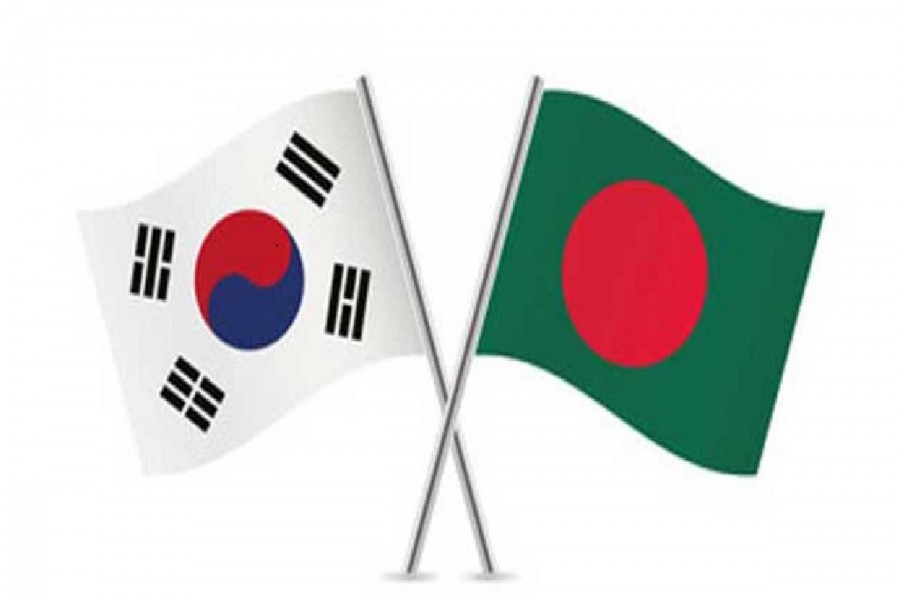Speakers at a discussion on Thursday stressed the need for exploring the due potential of the ties between Bangladesh and South Korea saying that this would benefit both countries.
They made the observation while speaking at the Country Lecture Series organised by the Bangladesh Institute of International Strategic Studies (BISS).
While addressing the virtual discussion, South Korean Ambassador Lee Jang Keun said Bangladesh-Korea bilateral trade is gradually increasing and reached $1,033 million last year from $654 million.
Bangladesh exported RMG products worth $336 million last year which was only $27 million in 2001.
The ambassador pointed out that Korea contributed a lot to creating the basic foundations of the country’s RMG sector.
Korea is also involved in supporting major infrastructure projects of the country like the Jamuna Bridge, he added.
He also mentioned that Bangladesh is the second-largest recipient of the Korean Economic Cooperation Fund.
BISS Chairman Ambassador Fazlur Rahman said, “Korea has been a reliable and longtime development partner of Bangladesh which has been extending significant cooperation and support since the early 1970s.
“It is one of the major trading partners of Bangladesh. There is a steady rise in bilateral trade between the two countries,” he added.
He said, “Korea is increasingly engaging itself in infrastructure, energy, ICT and Medical equipment sectors. Over 200 Korean companies have so far invested in Bangladesh.
In terms of ODA, Bangladesh is Korea’s priority partner country and the third-largest recipient of ODA with a total volume of $ 790 million between 1987 and 2019.”
In his speech, DG of the BIISS Major General Emdad Ul Bari said Korea has been a true companion of Bangladesh’s journey towards economic development, industrialisation and emancipation from poverty and women empowerment.
“The readymade garment (RMG) industry is a mainstay of this economic success story. Bangladesh is today one of the world’s largest garment exporters, with the RMG sector accounting for 84 per cent of Bangladesh’s exports,” he added.
“The road to this phenomenal transformation commenced in the early 1980s when some Bangladeshis received free training from Korean Daewoo Company, and after coming back to Bangladesh many of these workers started their own factories.”
“Another South Korean Firm, Youngones Corporation formed the first equity joint-venture garment factory with a Bangladeshi firm in 1980,” he added.
According to him, Bangladesh-Korea cooperation revolutionised the industrial sector of Bangladesh, and the RMG sector has also played a significant role in a massive societal change economically by uplifting a large cohort of poor and vulnerable women.
Till today, Korea, being the largest FDI investor in the RMG sector, continues to play a key role in the development of the country’s RMG sector, he added.


